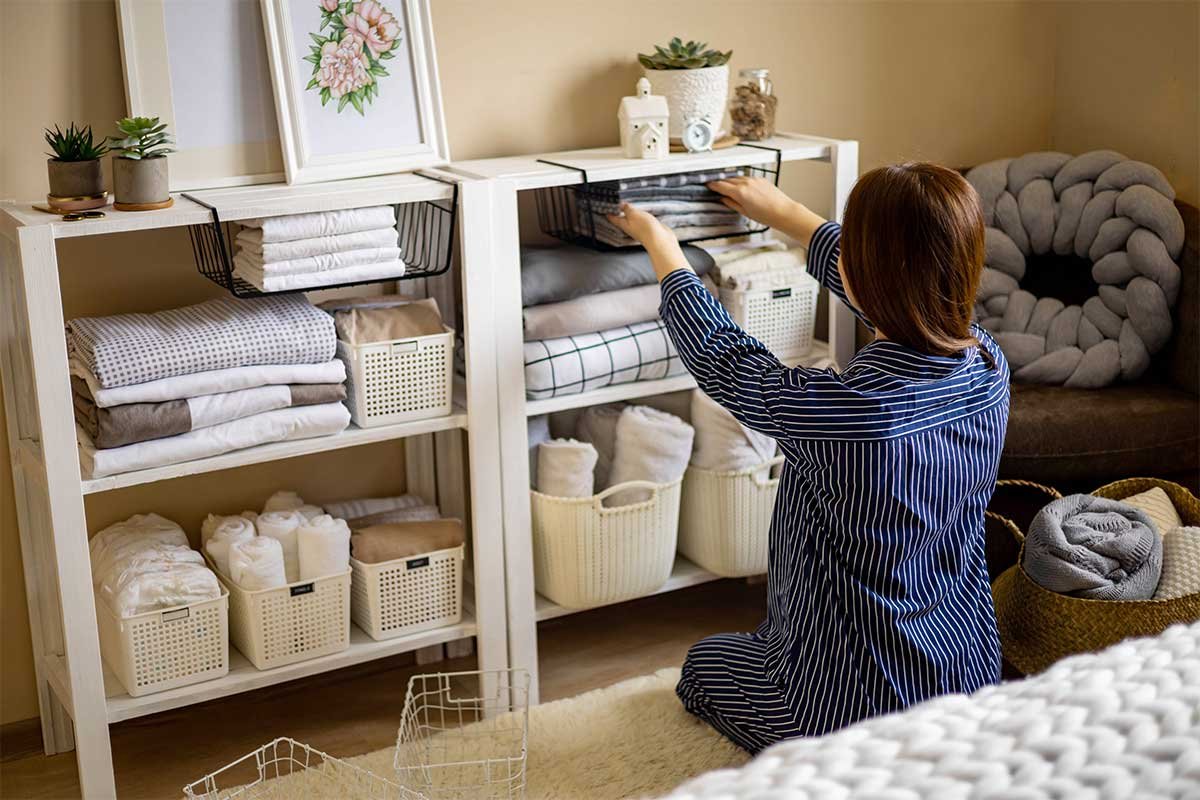
Running a household is no easy task. Preparing meals, mopping floors, cleaning bathrooms, doing laundry, and countless other activities could consume all your time before you know it. And if you are working full-time, things can quickly get chaotic at home. For many individuals, household chores even cause tension in their relationships.
But managing them is much similar to working in an office. You need effective systems, processes, and tools to bring order to the chaos, streamline regular and repetitive activities, and become efficient and productive. If all this sounds overwhelming, you don’t need to worry; with our practical tips, you can take charge of your household in no time.
1. Organize Your Chores
Responsibilities around the house can vary from one home to another. But the basic tasks are pretty much the same. Everyone needs to clean up, put things away, tidy, and attend to minor repairs.
Some of these need regular attention, while others should be done periodically. But remembering them all could be tricky when you are tackling multiple tasks at home and work. As a consequence, you could miss critical activities, resulting in time-consuming and costly repercussions. The best remedy for this is getting organized.
Start by listing all your household chores. Be thorough and cover every aspect of running your home. Then categorize them into three buckets—daily, weekly, and monthly—based on how frequently you must attend to them.
Daily chores can include preparing meals, washing dishes, doing laundry, watering the plants, and making beds. Weekly ones can cover vacuuming, cleaning bathrooms, changing sheets, grocery shopping, and attending to your garden. Paying bills, checking for repairs, and decluttering can come under the monthly list.
You can organize some of these tasks further by preparing checklists. This will especially work well with more tedious activities such as cleaning. For instance, you can prepare a checklist for cleaning each room so you don’t miss out on any important areas that need your attention. This type of system could introduce order and clarity to housework involving several smaller tasks.
2. Get Yourself a Scheduler
Often, ad hoc and unplanned activities could add to your daily routine. For instance, you may need to pick up a gift for your partner’s birthday or take your kids to the dentist for a checkup. Many of these will not fit into your regular daily, weekly, and monthly system.
The best solution for handling such tasks is a daily scheduler; it could be a diary-style book or even a calendar that you can stick up on a wall. The latter makes it easier to plan your month together with your family. But if you go with this option, maintain a separate to-do list to write down your chores.
There are a few things to remember when you are preparing your schedule and attending to planned housework and errands:
- Avoid including too many items in your daily to-do list. Consider what you can reasonably achieve in a day without over-stressing yourself.
- Keep your phone aside to minimize distractions when you are completing scheduled activities. Allocate a time to check social media and messages during the day and evening. If you are not expecting any calls, ignore those from unsaved numbers. You can always check who has called using PhoneHistory and return calls at leisure.
- Get help if needed. Ask the kids to clean and tidy up their bedrooms and let your partner prepare dinner. Also, consider getting professional help if budgets permit. You can hire an experienced cleaner for around $25 – $90 per hour.

3. Declutter and Organize
Establishing a system to organize items in your home is crucial for several reasons. To begin with, it can prevent wastage and save you money. For example, by adopting a first-in-first-out system for storing food in your cupboards, it is easier to check expiry dates and avoid unnecessary hoarding.
Besides, when you know exactly where things are, you no longer need to waste time rummaging through drawers and shelves.
According to studies, decluttering and organizing are also good for your mental well-being. They can help minimize tension and irritability and improve focus and mood.
So, start by identifying items you don’t need or rarely use. Separate what you can donate to a charity, give away to friends and family, and reuse or dispose of.
Next, determine the ideal locations for storing the remaining items to make them easily accessible. For instance, keep the essential bathroom cleaning items under the sink. Store herbs and other cooking ingredients right next to the stove or kitchen counter where you prepare food.
Use boxes, baskets, shelves, hangers, and similar organizing tools for a clutter-free, minimalistic home.
4. Start Meal Planning
Figuring out what to prepare for dinner can be burdensome when you get home from a hectic day at work.
Creating a weekly meal plan is the best way to organize your meals. Consider all three meals of the day and schedule them ahead. Have a few easy-to-cook recipes at hand so you can slot them in for those busy nights.
If you are pressed for time during weekdays, meal prep for the entire week and refrigerate.
Organizing your weekly meals ahead of time will make grocery shopping easier, too.
5. Prepare a Budget and Schedule Bills
Managing your finances is an important part of your household tasks. An effective budget helps you organize expenses within a manageable level. It will also allow you to plan and schedule your monthly bill payments.
- Get a printed planner and break down your monthly budget based on essential expense items—from food and travel to utilities.
- Consider how you could reduce costs. An example would be purchasing in bulk.
- Leave aside a small budget for any unexpected expenses.
- Schedule automatic bill payments where possible to avoid late payment charges.
Wrapping Up
Managing a household is a substantial responsibility that involves various time-consuming chores. To save time and prevent burnout, start by organizing your activities into daily, weekly, and monthly tasks. Keep a scheduler and list down daily to-dos. A system for decluttering, organizing, meal planning, and budgeting is also essential for efficient household management.




